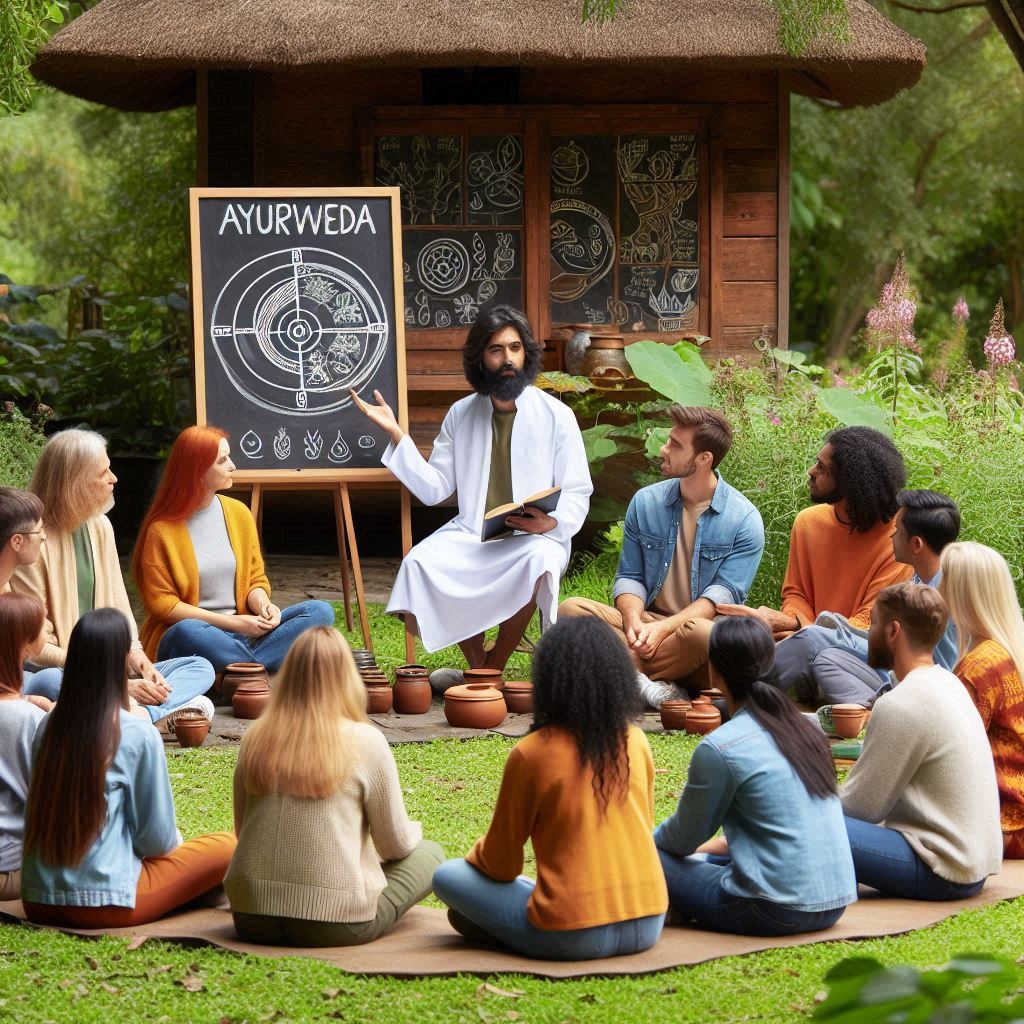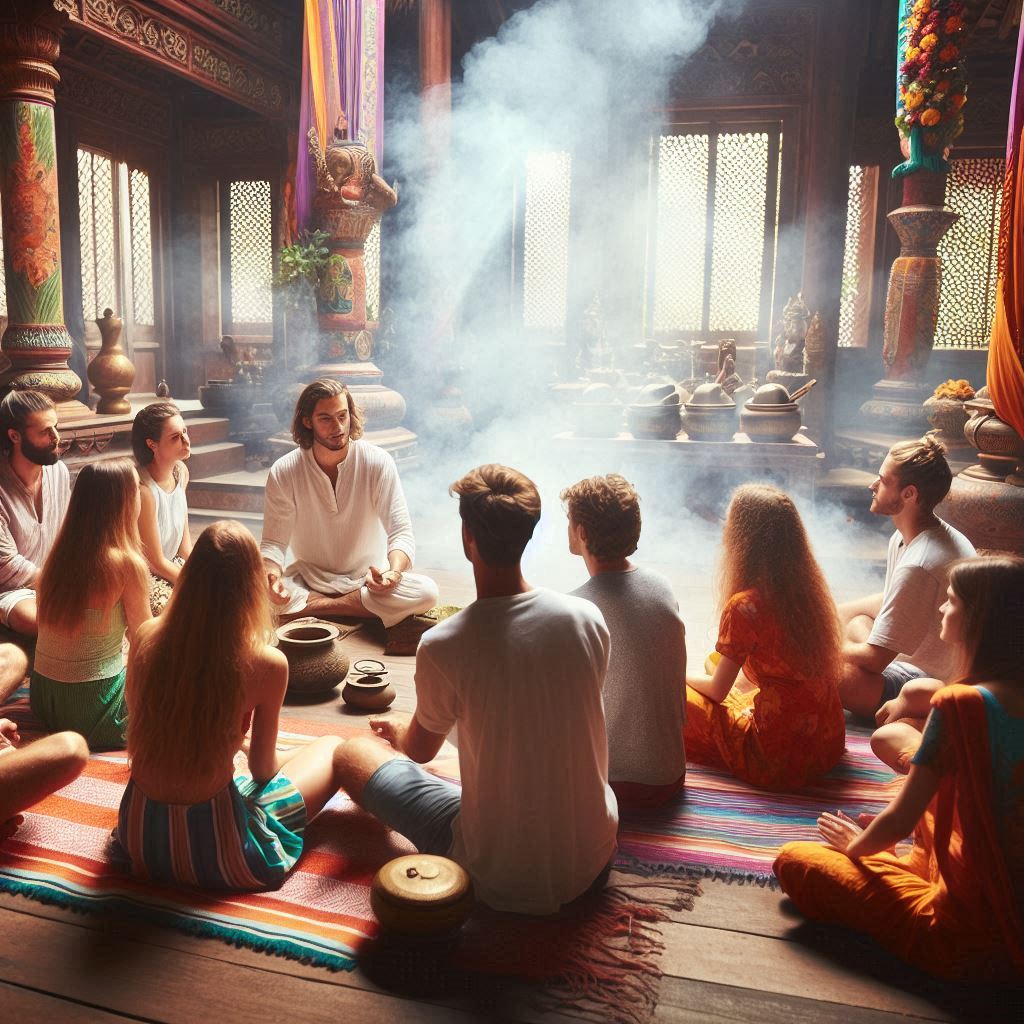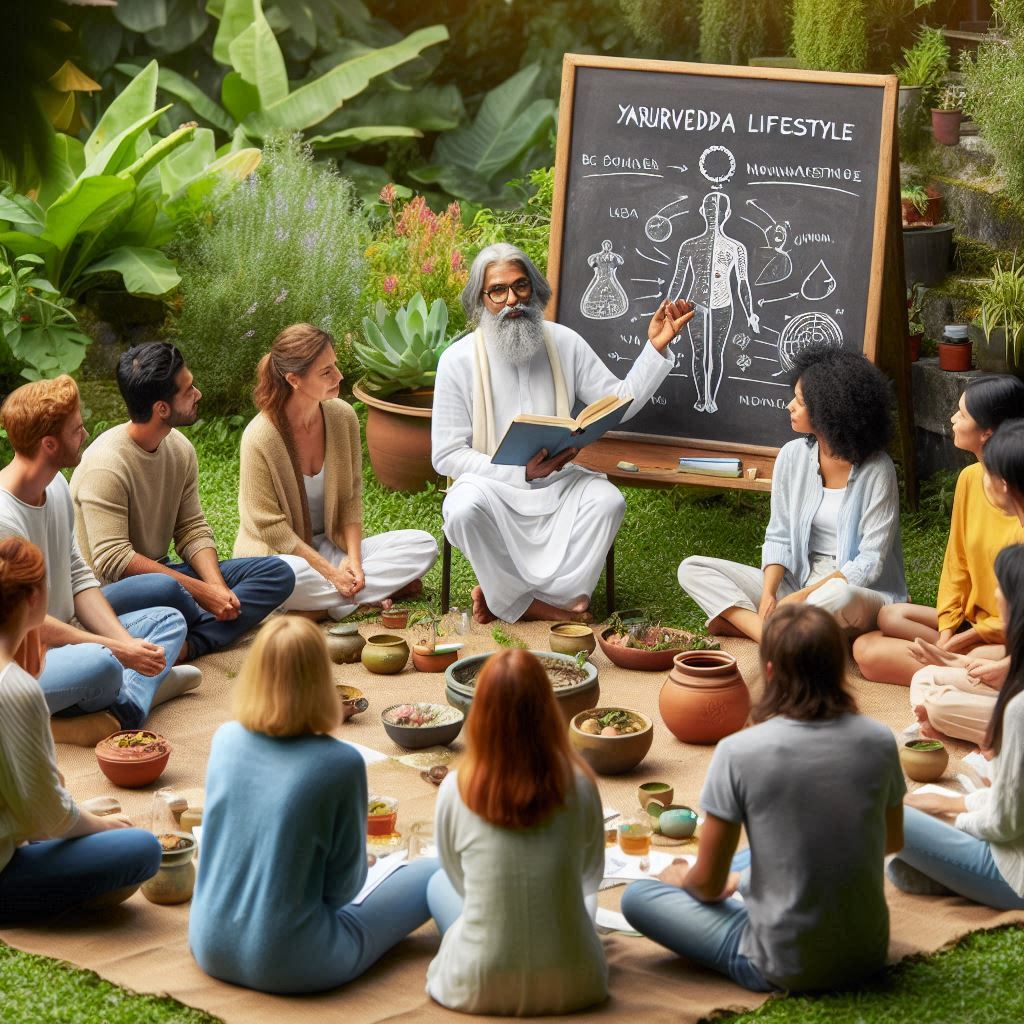A Diploma in Ayurveda and Panchakarma (DAPC) is a specialized educational program that focuses on traditional Indian holistic health practices, specifically Ayurveda and Panchakarma therapies. Ayurveda is an ancient system of medicine that originated in India and is based on a holistic approach to health and well-being. Panchakarma is a set of therapeutic procedures within Ayurveda aimed at detoxification and rejuvenation of the body.


Course Details and Requirements
- Eligibility for DAPC: Doctors, Internees
- Duration : 1 Month
- Certificate: KPN Ayurveda Certificate
- Course Fee: ₹90,000 (Check Conversion Rate) (including food & Accommodation)
- Mode of payment: All Sort of credit/debit, UPI etc are accepted
- Course Starts on : 1st of every month.
- Things to bring: Two passport size photos. And your Passport
Why KPN Ayurveda Hospital?
There is a big lack of institutions all around the country where B.A.M.S. graduates can be taught the right way to practice Panchakarma and this is the effort to develop the skills in you. When you talk about training centers for Ayurvedic doctors KPN Ayurveda is the model center with their professional way of teaching and experience in Ayurveda. The main planning of this Panchakarma Course is aimed to make you an expert in keraliya panchakarma procedures and to give a better shape to your career. Also, marketing is a big problem with Ayurvedic Graduates and we have enrolled some eminent persons from the marketing field to make sure that they will give you a proper insight into how you can develop a better Ayurvedic center or how to open an Ayurvedic hospital for yourself and how you can market your services.
The main points for this course are:
- Revisiting keraliya Ayurveda with a practical approach.
- Applying Ayurvedic principles in the practice of Ayurveda.
- Understanding Panchakarma from a new viewpoint.
- Patient assessment and case studies.
- Planning for Panchakarma Centre or an Ayurvedic hospital.
- Applying knowledge about Pathya-Apathya.
- Exposure to different types of ayurvedic medicines and their uses in different diseases.
- Detailed description of Panchakarma procedures.
- Marketing of the Ayurvedic services to the society
Course specialties:
- Classes and Practical training are handled by experts. Personal attention for each student.
- Free study materials for all students which contains printed notes for each student.
- Clinical training for students in our full-fledged KPN Ayurveda Ayurvedic Hospital.
Classes and practical demonstrations on special panchakarma therapies of Kerala:
| Theory Sessions | Practical Sessions |
|---|---|
| 1. Introduction to Ayurveda
1.1 Definition 1.2 Unique features 1.3 Aim 1.4 Concept of Health |
1. Sarvanga Abhyanga |
| 2. History of Ayurveda | 2. Shiro Abhyanga |
| 3. Branches of Ayurveda | 3. Pizhichil |
| 4. Basic principles of Ayurveda
4.1 Theory of Creation 4.2 Pancha Mahabhuta Concept 4.3 Tridosha Concept 4.4 Concept of Body – Mind – Soul 4.5 Concept of Sapta Dhatu (Body Elements) 4.6 Concept of Mala (Waste Products) 4.7 Concept of Srotas (Body Channels) 4.8 Concept of Agni (Digestive Fire) 4.9 Concept of Koshta (Alimentary Tract) 4.10 Concept of Prakruti (Body Constitution) |
4. Elakizhi |
| 5. Pulse Diagnosis/Naadi Pareeksha | 5. Navarakizhi |
| 6. Preparatory processes of Panchakarma 6.1 Snehakarma (oleation treatment) 6.1.1 Internal Oleation 6.1.2 External Oleation 6.1.3 Abhyanga 6.1.4 Padabhyanga (Oleation of the feet) 6.1.5 Shiroabhyanga (Oleation of Head) 6.2 Swedakarma (Fomentation treatment) 6.2.1 Tapa Sweda 6.2.2 Upanaha Sweda 6.2.3 Ushma Sweda (Herbal Steam & Bolus Bags) 6.2.4 Drava Sweda (Sudation with liquids) 6.2.5 Anagneya Sweda (Sudation without fire) 6.2.6 Benefits of Sweda (Sudation) 6.2.7 Regimens to be followed |
6. Muttakizhi |
| 7. Panchakarma therapy – Various Ayurvedic Treatments Different
Panchakarma Treatments 7.1 Vamana (Induced Vomiting) 7.2 Virechanam (Induced Purgation) 7.3 Basti (Medicated Enema) 7.4 Nasya (Nasal Medication) 7.5 Raktamoksha (Blood Letting) |
7. Jambeera Pinda Sweda |
| 8. Dinacharya/ Daily regimen | 8. Podikizhi |
| 9. Rutucharya/ Seasonal regimen | 9. Valuka Sweda |
| 10. Identification of different Medicinal plants | 10. Udwarthanam |
| 11. Upanaha Sweda | |
| 12. Bashpa Sweda | |
| 13. Nadee Sweda | |
| 14. Sthanika Sweda | |
| 15. Anna Lepa | |
| 16. Kashaya Dhara | |
| 17. Thakra Dhara | |
| 18. Ksheera Dhara | |
| 19. Taila Dhara | |
| 20. Sthanika Dhara | |
| 21. Pichu | |
| 22. Sthanika Pichu | |
| 23. Kati Vasti | |
| 24. Janu Vasti | |
| 25. Greeva Vasti | |
| 26. Hrid Vasti | |
| 27. Shiro Vasti | |
| 28. Shiro Dhara | |
| 29. Nasya | |
| 30. Agni Karma | |
| 31. Dhooma Pana | |
| 32. Ksheera Dhooma | |
| 33. Tarpana | |
| 34. Putapaaka | |
| 35. Pindi | |
| 36. Aschothan |

Reservation Payment Details:
We are committed to keeping up the quality of our training programs and we take only a limited number of students each month. So we advise students to reserve their seats well in advance.
- To secure a reservation in the program, 50% of the total course fees should be paid in advance.
- The advance fee deposit will be deducted from the total course fee and the balance must be paid on the first day of the training program.
- Students can also make full payment in advance to reserve the seat.
Refund policy:
- No Refund: No refund as cash back, but you can reschedule your reserved program with our consent.
- Transferability: In case if you are unable to join the above course, any of your friends or your referral person can attend the same program.
- Validity: Reservation is valid up to 2 years from the date of confirmation of reservation/payment
SPECIAL PRICE FOR GROUP REGISTRATION We offer a 10%
discount on
course fees for registrations of 5 or more persons in a team.
For
further details and queries write us to
info@kpnayurrveda.com


Leave a reply
We will get back to you soon.